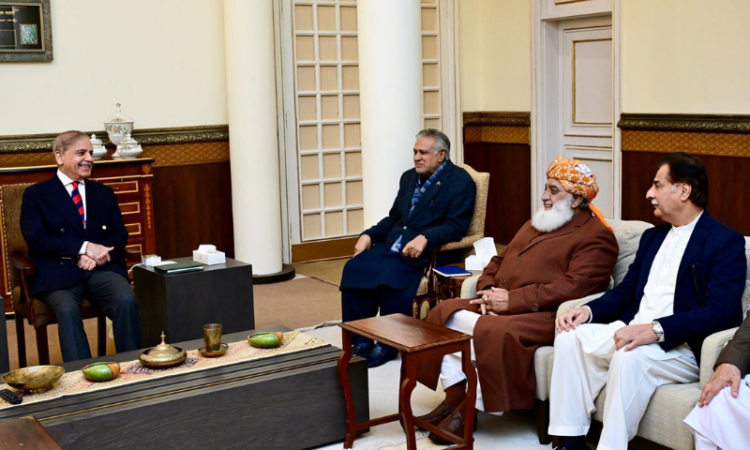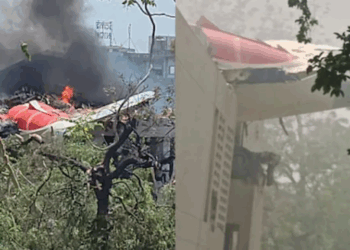Islamabad, December 20, 2024: Jamiat Ulema-e-Islam-Fazl (JUI-F) chief Maulana Fazlur Rehman has expressed optimism about the resolution of the Societies Registration (Amendment) Bill 2024, which deals with the registration of madrassas. His comments came after Prime Minister Shehbaz Sharif directed authorities to address the matter promptly.
“Practical steps in accordance with the Constitution will hopefully be taken to meet our demands,” Fazl stated while speaking to journalists following his meeting with the prime minister on Friday.
The meeting, held a day after the prime minister reached out to the JUI-F regarding the madrassa registration bill, was attended by key government officials, including National Assembly Speaker Ayaz Sadiq, Deputy Prime Minister Ishaq Dar, Minister for Law and Justice Azam Nazeer Tarar, Information Minister Attaullah Tarar, PM’s aide Rana Sanaullah, and Attorney General Mansoor Usman Awan. JUI-F representatives Abdul Ghafoor Haideri, Senator Kamran Murtaza, Raja Pervez Ashraf, and Qamar Zaman Kaira also participated.
During the meeting, PM Shehbaz Sharif instructed the Ministry of Law and Justice to ensure the resolution of the matter in compliance with constitutional and legal requirements. Fazl reiterated that the bill had already been passed by both the National Assembly and the Senate and had effectively become law.
He dismissed one of the President’s objections as unconstitutional, claiming it was raised after the constitutional deadline had lapsed. He also noted that the Speaker of the National Assembly had addressed the initial objections forwarded by the President.
Fazl expressed optimism about the outcome of the meeting, stating, “The prime minister spoke with good intentions, and we received a very positive response.” He suggested that a joint session of Parliament might not be necessary to resolve the issue.
Sources indicate that the President’s objections stem from fears that the bill, if enacted, could attract international criticism. Registration under the Societies Act might allow madrassas to be used for purposes other than education, potentially impacting FATF ratings and other global evaluations of Pakistan.
As the government works to address these concerns, the madrassa bill remains a focal point of debate, with both domestic and international implications hanging in the balance.








